The Ultimate NYC Real Estate Agent Startup Budget Guide: From Zero to First Commission (2025)
Starting your real estate career in New York City can feel like standing at the base of Mount Everest with a pocket calculator, trying to figure out if you can afford the climb. The truth is, most new agents drastically underestimate the financial commitment required to launch successfully in the most competitive real estate market in America.
After working with over 500 new agents in NYC over the past decade, I’ve seen too many promising careers derail not because of lack of talent or drive, but because of poor financial planning. The agents who thrive are those who enter the market with a clear understanding of the true costs and a solid financial foundation.
This comprehensive guide will walk you through every dollar you’ll need to invest in your first year as a NYC real estate agent, from licensing fees to that crucial first commission check. More importantly, I’ll share the insider strategies that successful agents use to accelerate their path to profitability.
The Reality Check: What It Really Costs to Launch in NYC
Let’s start with the hard truth: you’ll need approximately $8,000 to $12,000 in startup capital before you see your first commission. This isn’t just my opinion; it’s based on real data from hundreds of successful agent launches in Manhattan, Brooklyn, Queens, and the Bronx.
But here’s what most guides won’t tell you: the agents who allocate closer to $15,000 for their first year consistently outperform those who try to bootstrap their way to success. Why? Because real estate is a relationship business, and relationships require investment in time, presence, and marketing.
Your Year 1 Budget at a Glance
| Category | Estimated Cost |
|---|---|
| Licensing & Education | $530–$880 |
| Associations | $401 |
| Brokerage Fees | $1,800 |
| Marketing & Branding | $1,400–$2,000 |
| Tax Reserve (30% of income) | $2,500–$3,000 |
| Total Business Investment | $6,631–$8,081 |
| Living Expenses (6 months) | $30,000–$36,000 |
| Complete Launch Budget | $36,631–$44,081 |
Breaking Down Every Dollar: Your Complete Cost Analysis
1. Licensing and Education: Your Foundation Investment ($530-$880)
Your journey begins with New York’s mandatory 77-hour pre-licensing course. While you might be tempted to choose the cheapest option, this is where smart agents make their first strategic investment.
Pre-Licensing Course: $300-$600 The price difference between providers often reflects the quality of instruction and pass rates. Providers like The CE Shop offer comprehensive programs with practice exams and instructor support. Consider this: if spending an extra $200 on education helps you pass the exam on your first try, you’ve saved both time and the cost of retaking the exam.
📌 Cost-Saver Tip: Many pre-licensing schools offer payment plans. If cash flow is tight, spread the $600 over 3-4 months rather than compromising on quality education.
State Exam Fee: $15 This is straightforward, but here’s a pro tip: schedule your exam for a Tuesday or Wednesday morning when you’re likely to be most alert and the testing center is less crowded.
License Application Fee: $55 Background Check and Fingerprinting: $60
Errors & Omissions Insurance: $100-$150 annually This isn’t optional. E&O insurance protects you from lawsuits related to professional mistakes. Even the most careful agents need this protection, especially in NYC where transaction values are high and legal scrutiny is intense.
🚨 Avoid This Mistake: Don’t buy the cheapest E&O policy. A $50 difference in premium could mean the difference between $100K and $1M in coverage.
Total Licensing Investment: $530-$880
2. Professional Associations: Your Credibility Investment ($401)
Many new agents question whether association memberships are worth the cost. In NYC’s competitive market, they’re not just worth it; they’re essential for credibility and access.
National Association of REALTORS (NAR): $156 This gives you the right to use the REALTOR® trademark and access to exclusive resources, legal updates, and professional development opportunities.
Consumer Advertising Campaign Assessment: $45 This funds NAR’s national advertising campaigns that build consumer confidence in working with REALTORS®.
Local Board Membership (e.g., REBNY): ~$200 The Real Estate Board of New York provides access to exclusive market data, networking events, and professional resources that can accelerate your career. The connections you make through REBNY events often lead to referrals and mentorship opportunities that pay for the membership many times over.
Total Association Investment: $401
3. Brokerage Partnership: Your Platform Investment ($1,800 annually)
Choosing the right brokerage is one of your most critical decisions. In NYC, most successful new agents opt for 100% commission brokerages that charge a monthly desk fee rather than taking a percentage of each commission.
Monthly Desk Fee: $99-$399 The sweet spot for most agents is around $150 per month ($1,800 annually). This typically includes:
- Office space access
- Transaction management support
- Legal compliance assistance
- Marketing platform access
- Lead generation tools
Here’s what experienced agents know: a higher desk fee often means better support systems, which can be invaluable during your first year when every transaction feels overwhelming.
📌 Cost-Saver Tip: Negotiate your first 3 months of desk fees. Many brokerages offer reduced rates or payment plans for new agents who commit to a 12-month contract.
Total Brokerage Investment: $1,800
4. Marketing and Brand Building: Your Visibility Investment ($1,000-$2,000 Year 1)
This is where many new agents either overspend on ineffective strategies or underspend and remain invisible. The key is strategic allocation based on your target market.
Digital Marketing Foundation: $600-$800
- Professional headshots: $200-$300
- Website setup and hosting: $200-$300
- Social media management tools: $200
Print and Promotional Materials: $300-$500
- Business cards (high-quality): $100
- Property flyers templates: $100
- Open house signage: $100-$300
Targeted Advertising: $500-$700
- Facebook and Instagram ads: $300-$400
- Google Ads (local): $200-$300
📌 Cost-Saver Tip: Buy bundled print + digital marketing packages via Fiverr or Canva Pro. A $30/month Canva Pro subscription can replace thousands in design costs.
🚨 Avoid This Mistake: Don’t pay for IDX website integration in Year 1 unless you’re doing lead generation at scale. Most new agents get better ROI from simple landing pages and social media.
Pro Tip: Focus 70% of your marketing budget on digital channels where you can track ROI and adjust quickly. The remaining 30% should go to high-quality print materials that reinforce your professional image.
Total Marketing Investment: $1,400-$2,000
5. Tax Preparation: Your Compliance Investment ($2,000-$3,000)
As a self-employed agent, you’ll face a complex tax situation that trips up many newcomers. The key is planning from day one.
Self-Employment Tax: 15.3% This covers Social Security and Medicare taxes that would normally be split with an employer.
New York State Income Tax: 6.85% (varies by income bracket) New York City Income Tax: 3.88% (varies by income bracket)
Combined Effective Tax Rate: 25-30%
Smart agents set aside 30% of every commission check for taxes. This might seem excessive, but it’s better to have a tax refund than to owe money you don’t have.
Quarterly Tax Preparation: $500-$750 per year Hiring a tax professional who understands real estate is worth every penny. They’ll help you maximize deductions and avoid costly mistakes.
Total Tax Planning Investment: $2,500 (30% of estimated first-year income)
🧮 NYC Real Estate Agent Startup Budget Calculator (2025)
Real Agent Success Stories
“I started with $10,000 in savings and almost blew half of it on a flashy website and expensive lead generation. What actually brought in my first three clients was door-knocking in Astoria and consistent Instagram posts about neighborhood developments. By month four, I had closed two deals and never looked back.” – Emily R., Astoria Specialist, 18 months in the business
“The biggest mistake I see new agents make is trying to serve all of NYC. I focused solely on Williamsburg condos under $1M. Within six months, other agents were referring their Williamsburg buyers to me. Specialization isn’t limiting – it’s liberating.” – Marcus T., Williamsburg Condo Expert, 3 years experience
The Bootstrapper’s Survival Guide: Launching with $5,000
If $15,000 seems impossible, here’s how to launch with minimal capital (though expect a longer path to profitability):
| Essential Category | Minimum Investment |
|---|---|
| Licensing & Insurance | $530 |
| NAR + Local Board | $401 |
| 6-Month Brokerage | $900 |
| Basic Marketing | $500 |
| Tax Reserve | $1,000 |
| Total Survival Budget | $3,331 |
The Bootstrapper Strategy:
- Start part-time while keeping your current job
- Focus exclusively on your sphere of influence for first 90 days
- Use free social media tools (Instagram, Facebook groups)
- Partner with experienced agents as a buyer specialist
- Reinvest every commission dollar for first 6 months
📌 Bootstrapper Cost-Saver: Join a team instead of going solo. Many teams provide leads, mentorship, and shared marketing costs in exchange for a commission split.
The Break-Even Reality: How Many Deals Do You Really Need?
Let’s do the math based on current NYC market conditions:
Average NYC Home Sale Price: $800,000 Average Commission Rate: 5.36% Gross Commission per Sale: $42,880 Your Share (100% commission model): $42,880 minus desk fee
To recover startup costs ($8,000-$10,000): 1-2 deals To match average agent income ($90,733): 3-4 deals To cover living expenses and business costs: 5-6 deals
But here’s the insider secret: successful agents don’t just aim to break even. They plan for reinvestment and growth from deal one.
Smart Financing Options for New Agents
Not everyone has $15,000 sitting in their savings account. Here are legitimate ways to fund your real estate launch:
Credit Cards (Use Strategically)
- 0% APR Cards: Chase Ink, Capital One Spark offer 12-15 months interest-free
- Business Credit Cards: Build credit while earning rewards on business expenses
- Limit: Only use for essential startup costs, not living expenses
Business Banking Solutions
- Business Checking with Overdraft Protection: Wells Fargo, Chase offer new business accounts with initial credit lines
- Expense Tracking: Use tools like QuickBooks or FreshBooks from day one for tax preparation
Alternative Financing
- Personal Line of Credit: Often better rates than credit cards for larger amounts
- Family Investment: Formalize loans from family with written agreements
- Part-Time Income: Keep a flexible side job for first 3-6 months
🚨 Financing Warning: Never finance more than 50% of your startup costs. You need cash reserves for unexpected expenses and slow months.
⚠️ What If You Fail?
Let’s talk openly for a moment. Most blogs skip this part because it’s uncomfortable. But the truth is, not everyone finds immediate success in real estate. If things don’t go as planned right away, you’re not alone.
Here’s a realistic game plan if you find yourself struggling:
📉 What Happens if You Run Out of Money?
First off, breathe. Running out of budget early on happens to more agents than you might think. It doesn’t mean your career is over; it means it’s time to adapt quickly and smartly. Here’s what you can do:
- Go back to basics: Pause expensive ads and subscriptions, and shift your energy into activities like door-knocking, open houses, and social media outreach. These are free and effective ways to reconnect with your audience.
- Consider part-time work: If necessary, take on flexible side work to reduce financial pressure. Plenty of successful agents had side gigs when they started.
- Ask for help: Talk honestly with your broker, mentor, or more experienced agents. Most have been exactly where you are and can provide valuable insights.
🔀 When to Consider Joining a Team or Switching Firms
There’s no shame in pivoting to improve your chances of success. Here’s how you know it might be time to make a change:
- You’ve been working hard for 3-4 months without leads or sales. At this point, joining a productive team could provide much-needed support and resources.
- Your current brokerage isn’t offering meaningful training or support. Switching firms can breathe fresh life into your career. Find a brokerage that genuinely invests in new agent success.
🛑 Signs It’s Time to Pause and Reflect
- You’re constantly stressed about finances, and it’s starting to affect your health or relationships.
- Your daily work feels busy but isn’t bringing results. You feel stuck or unsure what to do next.
- You’ve lost passion or excitement for your career. If you dread work consistently, it’s a signal to step back and reconsider your approach.
Taking a short break of a few weeks to recalibrate isn’t a failure. It’s a smart, mature decision that can help you clarify your strategy and goals. Remember, real estate careers rarely take off overnight. Many successful agents struggled before achieving great results. You can too.
Your First Commission Timeline: What to Expect
Understanding the realistic timeline helps you plan both financially and emotionally:
Days 0-30: Foundation Phase
- Complete licensing process
- Research and select brokerage
- Set up basic business infrastructure
- Begin building contact database
Days 31-60: Launch Phase
- Join brokerage and complete onboarding
- Create marketing materials
- Launch social media presence
- Start sphere outreach campaign
- Attend first networking events
Days 61-90: Activity Phase
- Begin showing properties to prospects
- Submit first listing presentations
- Establish daily prospecting routine
- Build relationships with other agents
- Complete first property showings
Days 90-120: Deal Phase
- Submit first offers for buyers
- Sign first listing agreements
- Navigate first contract negotiations
- Coordinate inspections and appraisals
- Prepare for first closing
Days 120-150: Commission Phase
- Attend first closing as listing or buyer agent
- Receive first commission check
- Celebrate and immediately plan for deal #2
- Set aside taxes and reinvestment funds
Reality Check: 60% of agents close their first deal between days 90-150. The key is consistent daily activity, not perfection.
Your Month-by-Month Action Plan
Months 1-2: Foundation Phase
- Complete pre-licensing education
- Pass state exam
- Apply for license
- Join NAR and local board
- Select brokerage
- Set up basic marketing materials
- Open business bank account
- Establish relationship with accountant
Months 3-4: Launch Phase
- Begin prospecting activities
- Launch digital marketing campaigns
- Attend networking events
- Start building sphere of influence database
- Complete first listing presentation
Months 5-6: Momentum Phase
- Close first transaction
- Refine marketing based on early results
- Expand networking efforts
- Begin building referral relationships
- Plan for year-two growth
Advanced Strategies for Faster Profitability
The Sphere Activation Method
Your sphere of influence (friends, family, former colleagues) is your most valuable asset. Successful agents systematically reconnect with 5-10 people per week, not to sell, but to inform them about their new career and ask for advice and referrals.
The Neighborhood Expert Approach
Instead of trying to serve all of NYC, become the go-to expert for 2-3 specific neighborhoods. This focused approach allows you to:
- Develop deep market knowledge
- Build relationships with local businesses
- Create targeted marketing campaigns
- Establish yourself as the local expert
The Team Partnership Strategy
Consider partnering with an experienced agent as a buyer’s specialist. This provides:
- Immediate income opportunity
- Hands-on learning experience
- Access to established systems
- Mentorship and guidance
Common Pitfalls That Drain Your Budget
Overspending on Technology
New agents often get overwhelmed by the array of tech tools available. Start with basics (CRM, email marketing, social media scheduler) and add tools only as your business grows.
Ineffective Lead Generation
Buying leads can be tempting, but they’re expensive and often low-quality. Focus on relationship-building and referral generation instead.
Ignoring Tax Planning
Failing to set aside money for taxes is the fastest way to create a financial crisis. Automate this process by setting up a separate tax savings account.
Underestimating Time to First Commission
The average time from license to first commission in NYC is 90-120 days. Plan for this reality both financially and emotionally.
Building Long-Term Financial Success
Year One: Survival and Foundation
Focus on breaking even while building systems and relationships.
Year Two: Growth and Scaling
Reinvest 15-20% of commissions into marketing and business development.
Year Three and Beyond: Optimization and Leadership
Consider team building, specialization, or additional revenue streams like property management or real estate investing.
Frequently Asked Questions
How much money should I have saved before starting my real estate career in NYC?
You should have at least $15,000-$20,000 in savings beyond your startup costs to cover living expenses during your first 3-4 months. This includes your regular monthly expenses plus the business investments outlined in this guide. Many successful agents recommend having 6 months of living expenses saved before starting.
Can I start part-time while keeping my current job?
While legally possible, part-time real estate rarely succeeds in NYC’s competitive market. Clients expect immediate responses and full availability. If you must start part-time, plan to transition to full-time within 90 days and be prepared for a longer path to profitability.
Are the startup costs tax-deductible?
Many startup costs are deductible business expenses, including licensing fees, education costs, marketing materials, and professional memberships. However, personal living expenses are not deductible. Consult with a tax professional to maximize your deductions legally.
What’s the difference between working with a traditional brokerage versus a 100% commission brokerage?
Traditional brokerages typically take 50-70% of your commission but provide more support, leads, and training. 100% commission brokerages let you keep all your commission (minus a desk fee) but provide less hands-on support. New agents often benefit from traditional brokerages initially, then move to 100% commission models as they become more experienced.
How long does it typically take to close your first deal in NYC?
From license to first closing typically takes 90-150 days. This includes time to find clients, show properties, negotiate contracts, and complete the closing process. Agents who start with warm leads from their sphere of influence often close their first deal faster.
Should I specialize in a specific property type or neighborhood from the start?
Yes, specialization is highly recommended in NYC. Choose 2-3 neighborhoods where you can become the local expert, or focus on a specific property type (condos, co-ops, luxury, first-time buyers). This focused approach makes your marketing more effective and helps build expertise faster.
What are the most effective marketing strategies for new NYC agents?
The most effective strategies combine digital and personal networking: social media presence, neighborhood open houses, sphere of influence outreach, local business partnerships, and consistent content creation about your target neighborhoods. Avoid expensive lead generation services until you’ve mastered these fundamentals.
How do I handle the feast-or-famine nature of commission income?
Create a business budget based on your lowest expected monthly income, not your highest. Set aside 30% of each commission for taxes, 20% for business expenses, and 20% for slow months. Consider taking on buyer clients between listings to create more consistent deal flow.
What insurance do I need beyond E&O insurance?
Beyond Errors & Omissions insurance, consider general liability insurance, cyber liability insurance (if you collect client data), and income protection insurance. If you use your personal vehicle for business, ensure your auto insurance covers commercial use.
How do I know if my brokerage is the right fit?
Evaluate your brokerage based on training quality, support responsiveness, commission structure fairness, marketing resources, technology platforms, and cultural fit. If you’re not closing deals within 6 months or feel unsupported, it may be time to consider other options.
Your Investment in Success
Starting a real estate career in NYC requires significant financial commitment, but it’s an investment in your future, not just an expense. The agents who approach their launch strategically, with adequate funding and realistic expectations, consistently outperform those who try to succeed on a shoestring budget.
Remember, in New York City real estate, you’re not just competing against other new agents. You’re competing against seasoned professionals with years of experience and established client bases. The investment you make in your launch doesn’t just cover costs; it positions you to compete effectively from day one.
The path from zero to your first commission check isn’t easy, but with proper planning, adequate funding, and persistent action, it’s absolutely achievable. Every successful agent in NYC started where you are now, and with the right foundation, your real estate career can become the vehicle for the financial freedom and professional satisfaction you’re seeking.
Your success story starts with this first investment in yourself. Make it count

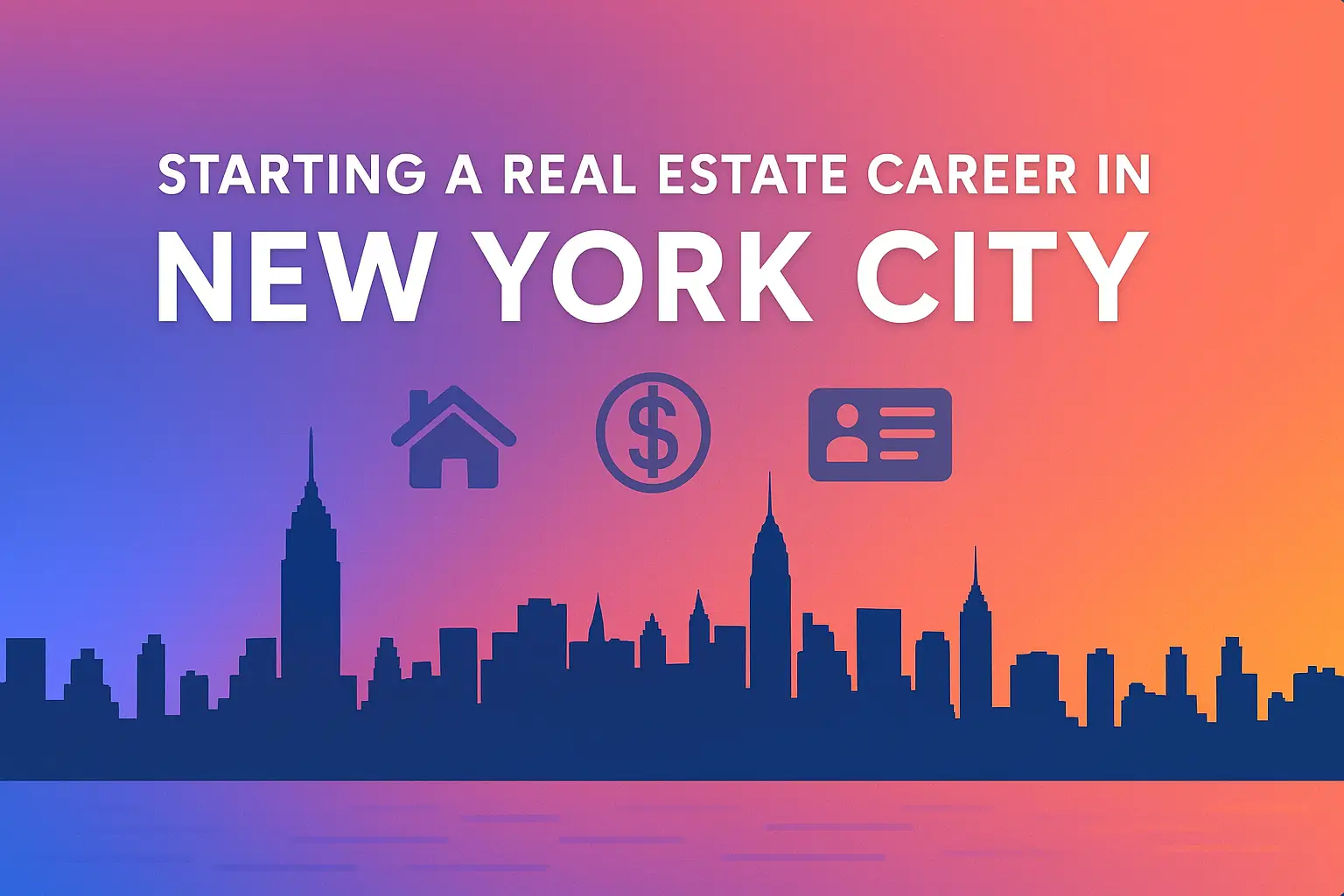
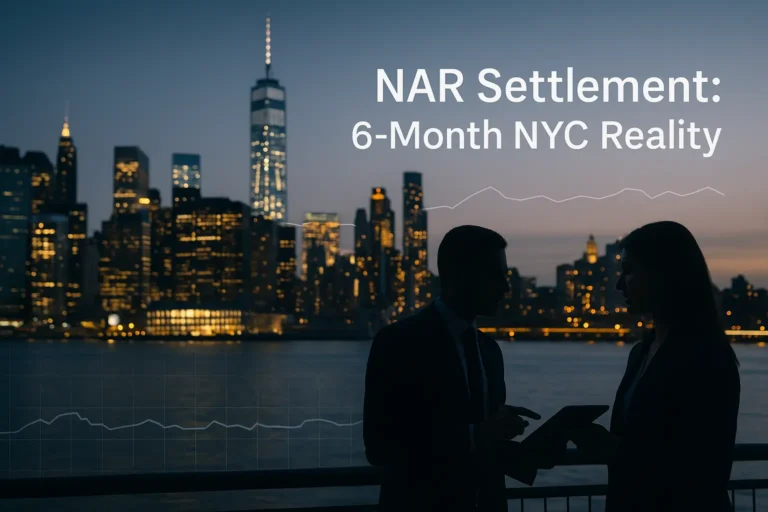

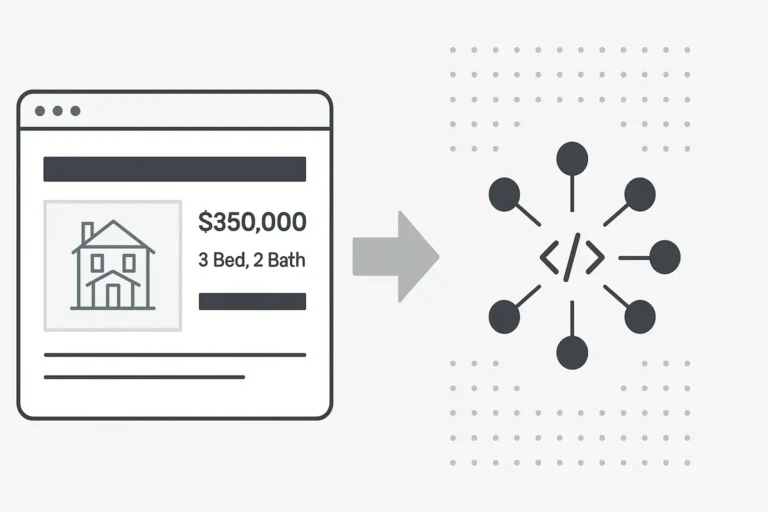
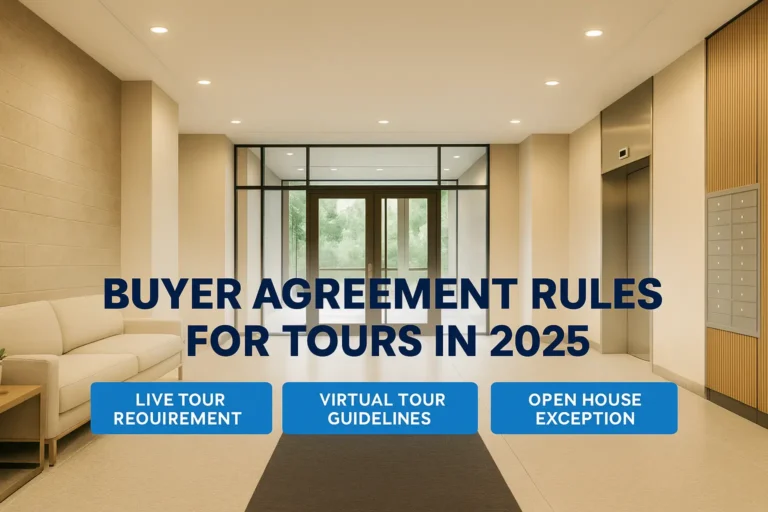

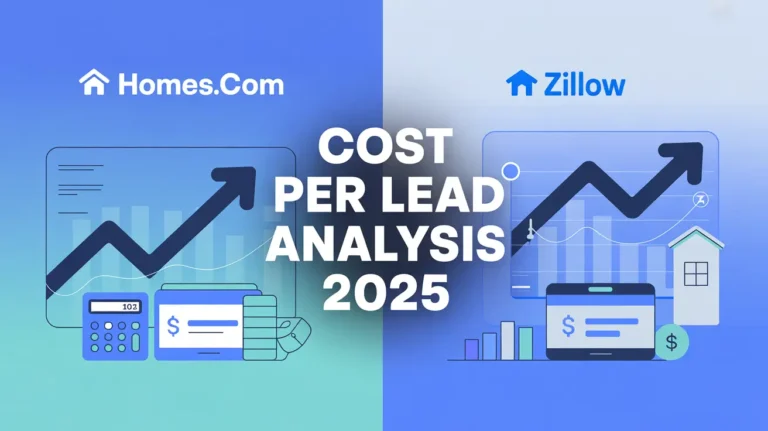
One Comment